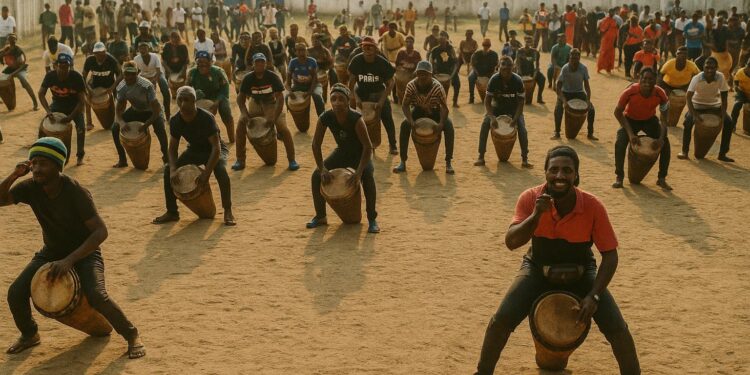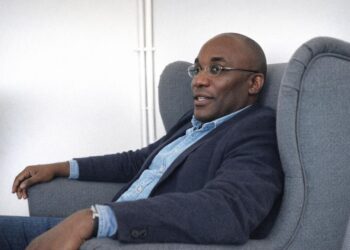A Stage Set for Continental Harmony
In the shaded courtyards of Brazzaville’s national theatre complex, the final rehearsals for the twelfth Pan-African Music Festival unfold with the calm precision of a diplomatic protocol. Since its creation in 1996, FESPAM has functioned as more than a celebration of rhythm; it is an instrument of cultural multilateralism that periodically convenes musicians, choreographers and policy-makers in the Congolese capital. This year’s edition, scheduled from 19 to 26 July, carries the thematic banner “Music and Economic Stakes in Africa in the Digital Era”, a formulation that acknowledges both the creative and commercial currents shaping African soft power (African Union 2022).
From Casting Call to Curated Ensemble
At the centre of the opening ceremony is “Danse Incolore”, the Franco-Congolese company led by master choreographer Gervais Tomadiatunga. Out of an initial pool of 300 candidates, a disciplined selection process retained 211 performers—musicians, traditional drummers, contemporary dancers and acrobats—whose collective task is to weave regional idioms into a coherent 90-minute tableau. Tomadiatunga, acclaimed for collaborations with European opera houses, describes the commission as “an opportunity to inscribe an international vocabulary onto the cultural DNA of my homeland”, echoing the festival’s ambition to reconcile local authenticity with global standards.
Government Stewardship of Creative Industries
Minister of Cultural, Tourist, Artistic and Leisure Industries Marie-France Hélène Lydie Pongault has personally monitored rehearsals, signalling the strategic value placed on the creative economy by the Congolese administration. Her portfolio, recently rebranded to stress the term “industry”, underscores a policy shift from purely patrimonial custodianship toward market-oriented production chains. Speaking after a closed-door technical run, the minister expressed confidence that the performers “will embody the professionalism demanded by an event of continental magnitude”, while pledging to resolve concerns over artists’ remuneration before the festival’s curtain rises.
Monetising Rhythm in the Digital Era
The festival theme resonates with broader African Union recommendations that member states deploy digital platforms to capture revenue lost to informal distribution networks. In Congo-Brazzaville, where mobile broadband penetration now exceeds forty percent (ITU 2023), streaming services and virtual ticketing are increasingly viable. FESPAM’s organising committee has partnered with regional telecom operators to broadcast live performances via encrypted channels, a pilot venture aimed at converting cultural enthusiasm into fiscal flows. Analysts at the Economic Commission for Africa estimate that a ten-percent increase in digital monetisation could inject over 50 million US dollars annually into Central African creative sectors, lending a tangible economic dimension to the festival’s artistic showcase.
Soft Power and Regional Perception
Beyond balance sheets, Brazzaville’s investment in FESPAM serves a nuanced diplomatic calculus. Hosting a pan-African stage enables the Republic of the Congo to project stability and intercultural hospitality at a moment when several neighbouring states grapple with security headwinds. Diplomats consulted by the review note that invitations have been extended to cultural ministers from all Economic Community of Central African States members, an overture that complements the country’s ongoing mediation roles in regional dialogues (ECCAS 2024). If the festival succeeds in fusing economic foresight with artistic spectacle, it will reinforce the perception of Brazzaville as a convening hub—one where drums, data and diplomacy can share a resonant beat.











































